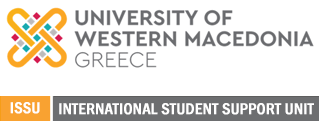Currency
Greece is a Member-State of the European Union and uses its uniform currency – the Euro. Greece, as is the case with the other Member-States of the E.U. uses eight coins as follows: 1, 2, 5, 10, 20 and 50 cents or lepta in Greek and 1 and 2 Euros. The banknotes are issued in the following denominations: 5, 10, 20, 50, 100, 200 and 500 Euros.
Currency exchange rates are clearly displayed in every bank that accepts currency exchange, while credit card holders may acquire money from the ATMs of the collaborating banks. Greek banks are open for the public from 8:00 to 14:30 Mondays to Thursdays and from 8:00 to 13:30 on Fridays. They are closed on Public Holidays. Euros can also be exchanged for notes of other foreign currencies at exchange offices that are situated at the airport and certain main ports, in the larger cities, as well as at many tourist destinations. A passport is required when exchanging currencies.
Opening your personal bank account:
After an appointment at the shop near your home or the one that serves you, you will need to submit the following documents:
1)Valid passport or ID card of a country within the EU, (for foreigners within the EU residing in Greece).
2)Tax statement of the country of taxation.
3)Confirmation document certifying the VAT number in the country of origin.
In case you are a holder of a Taxpayer Identification Number abroad, the proof of the Taxpayer Identification Number or equivalent of the Taxpayer Identification Number can be a public document of your country of residence (from a Public Authority / Embassy / Consulate) in which it is reflected).
4)Confirmation of Greek Taxpayer Identification Number (TIN).
5)Certificate of residence abroad.
6)Utility bill of residence in Greece showing the address of residence.
7)Certificate of professional status and work address
(Recent Certificate of Studies or Academic Identity).
8)Mobile phone (if there is a Greek mobile phone, otherwise a fixed phone bill of a foreign country).
Foreign documents should be legally translated by an official body, in English or in Greek, and their authenticity should be certified. Public documents issued/translated in countries that have acceded to the Hague Convention must bear an apostille stamp from the competent foreign authority.
Identification Certificates must be original and bear your photograph.
Please note that the Bank reserves the right to request additional documents if required.


